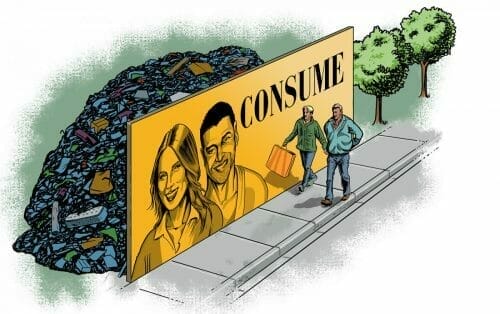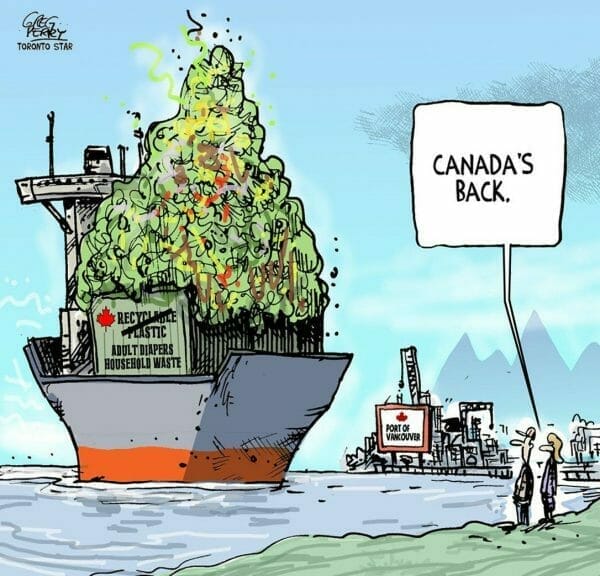The City of Montreal has a waste management problem.
Considering that the average Montreal resident produces approximately 464 kilograms of waste per year, and more than half of that lies rotting in an off-island landfill while the rest is either recycled or composted.
Making matters worse, Enviro Connexions, the Terrebonne site presently responsible for collecting 40% of Montreal’s waste, will close its doors in 10 years. The city’s other alternative for waste-disposal, China, will no longer welcome the thousands of containers filled with Montreal’s discarded paper. China isn’t the only country no longer accepting our waste. Last year, Rodrigo Duterte, president of the Philippines, threatened to cut ties with Canada if we didn’t take back 69 containers containing 1,500 tonnes of waste.
The city’s waste-reduction goals include improvements to its composing facilities. Overall residual waste has decreased by eight per cent since 2010, more than 50% of what’s going into landfills is made up of organic material that could be processed better elsewhere. When it isn’t, it decomposes in a landfill, which then produces the greenhouse gas methane, and contributes to global warming.

In October, Montreal devised a plan to divert 85% of garbage away from landfills by 2050 to be in compliance with the goals set out by the United Nations Secretary General. The city intends to modernize and construct new organics processing facilities, which will produce soil amendments and natural gas that will present a useable alternative to fossil fuel extraction.
But that produces even more problems—like smell. Nobody wants to live in a neighbourhood that smells like garbage. That’s why Biorem (BRM.V) announced an order for a $6 million air emission abatement project today.
“One of the most difficult and challenging aspects of these waste diversion initiatives is an effective solution for odour control. Ineffective odour management plans at these types of facilities in other jurisdictions have resulted in large environmental fines and even plant shutdowns in extreme cases. BIOREM was successful in demonstrating that the incorporation of our engineered solutions and next generation abatement systems early in the design process can reduce overall project costs and ensure a happy community once operations begin,” said Derek Webb, president and CEO of BIOREM.
The sustainable development goals are a call for action by all countries—poor, rich and middle-income—to promote prosperity while protecting the planet. Montréal ratified the Paris City Hall Declaration committing themselves to reducing its GHG emissions by 80% by 2050. This commitment enhanced the objective of reducing GHG emissions by 30% by 2020 in comparison to 1990 and encourages the municipal https://e4njohordzs.exactdn.com/wp-content/uploads/2021/10/tnw8sVO3j-2.pngistration and Montréalers to act accordingly and modify their behaviour.
Biorem is an environmental biotechnology company that designs, manufacturers and distributes a line of air emissions control systems used to eliminate odour, volatile organic compounds and hazardous air pollutants. The company has sales and manufacturing offices across the continent, dedicated research facilities, analytical and microbial laboratories, a worldwide sales representative network and a dedicated service division.
The company’s scope for this Montreal project includes ancillary equipment like chemical scrubbers for pre-treatment of exhaust gases, air collection ductwork and exhaust stacks. The greenfield facility is at the design stage, and the company anticipates the bulk of delivers to happen in 2021.
—Joseph Morton



